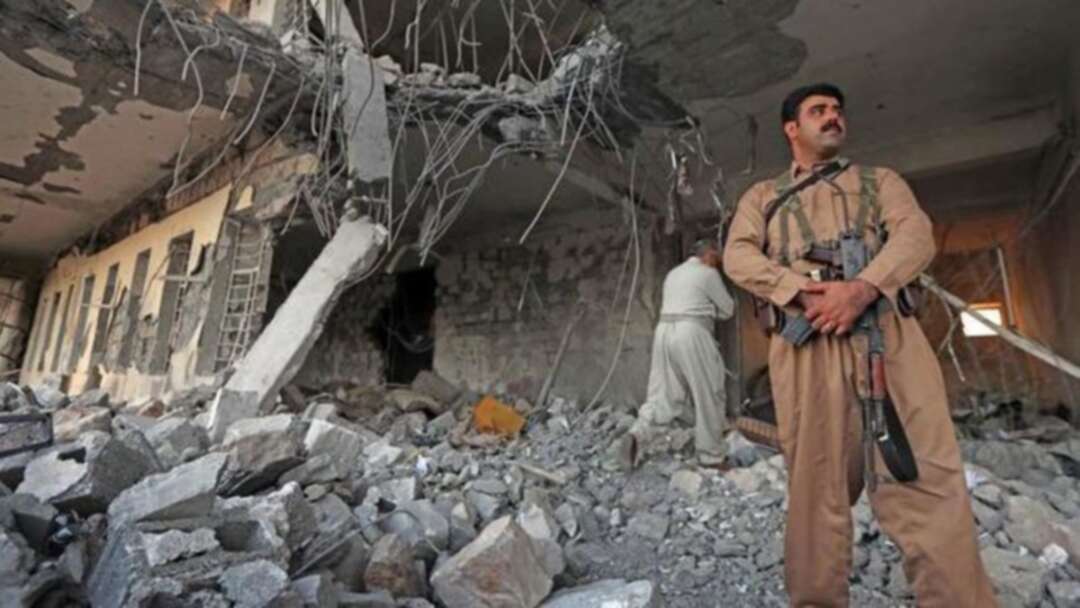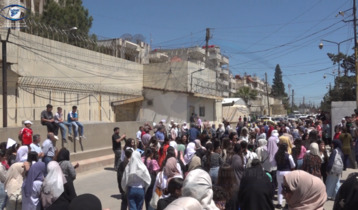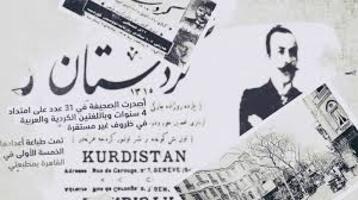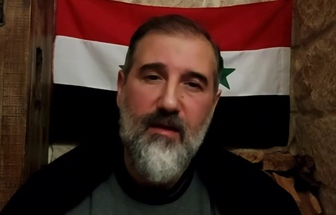-
Fearing an American alliance, Iran negotiates its opposition Kurdish parties

Despite Iran and the Kurdish parties of Iran have been engaged in intermittent armed conflict for decades, Iran has not been able to eradicate these parties and neither have Iran’s armed Kurdish parties been able to force their demands upon the state. Therefore, there was a need for mutual compromise. The Kurdish parties have shown willingness to negotiate with the government of Iran, provided that the latter is serious about finding a lasting solution
Recently, opposition Kurdish parties in Iran stated that representatives of the Iranian regime held meetings in the Norwegian capital, Oslo, preparing for negotiations with 4 opposition Kurdish parties; Democratic Party of Iranian Kurdistan (PDKI), Komala Party of Iranian Kurdistan, Democratic Party of Kurdistan (PDK) and Komala Communist Party of Kurdistan.
Kurdish sources have discerned that the three-stage talks between these parties and Iranian officials, including intelligence officers, took place in Germany and Norway.
The sources, preferred to remain unidentified, said that Iran had threatened to attack and destroy the entire Iraqi part bases of these parties if Tehran was targeted by American air strikes or if these parties took sides with America and its allies.
The Kurdish sources said that Iran required those leftist view parties to lay down arms and sign treaties not to stand by any anti-Iranian forces in return of allowing them to return to the country and act as peaceful political organizations.
Tehran puts pressure on Iraqi Kurdistan
According to sources, Tehran has forced the Kurdistan Regional Government to ban the activity and presence of these parties and disarm them, otherwise they will be treated as an enemy force. This has prompted the regional government to pressure on the leaders of the Kurds of Iran to join the talks.
“ It seems that the Kurdish parties of Iran have been trapped in between the Iranian regime which bombs their headquarters every now and then and the pressure of the Iraqi Kurdistan government that does not want tension with Tehran,” explained a Kurdish activist.
The sources mentioned that the Iranian Kurdish parties’ leaders did not explicitly announce the talks because they have become embarrassed under the pressure of their cadres and the Kurdish public opinion.
The Kurds are currently reviving the 30th anniversary of the assassination of their historic leader Dr. Abdul Rahman Qasemlo, who was assassinated on 13 July 1989 by the Iranian intelligence in Austria. Qasemlo went to negotiate the rights of the Kurds with an Iranian government delegation coming from Tehran, but he was shot dead at the negotiating table.
The sources explained that the meetings were conducted by a non-governmental organization close to the Norwegian Ministry of Foreign Affairs called "Norwegian Center for the Settlement of Disputes NOREF".
They also pointed out that the Iranian delegation included high-level representatives from the Ministry of Foreign Affairs and the Office of Supreme Leader Ali Khamenei, in addition to officers from the Ministry of Intelligence and the intelligence service of the Revolutionary Guard.
Iran's intelligence services had also assassinated Sadiq Sharafkandi, secretary-general of the Kurdistan Democratic Party (KDP) and three of his assistants in Berlin 1992, during a negotiating meeting. This has prompted oppositions to criticize the parties who want to negotiate with the regime in Tehran. They accused them of "not learning lessons from the past".
Fearing an American alliance, Iran negotiates its opposition Kurdish parties
Fearing an American alliance, Iran negotiates its opposition Kurdish parties
You May Also Like
Popular Posts
Caricature
BENEFIT Sponsors BuildHer...
- April 23, 2025
BENEFIT, the Kingdom’s innovator and leading company in Fintech and electronic financial transactions service, has sponsored the BuildHer CityHack 2025 Hackathon, a two-day event spearheaded by the College of Engineering and Technology at the Royal University for Women (RUW).
Aimed at secondary school students, the event brought together a distinguished group of academic professionals and technology experts to mentor and inspire young participants.
More than 100 high school students from across the Kingdom of Bahrain took part in the hackathon, which featured an intensive programme of training workshops and hands-on sessions. These activities were tailored to enhance participants’ critical thinking, collaborative problem-solving, and team-building capabilities, while also encouraging the development of practical and sustainable solutions to contemporary challenges using modern technological tools.
BENEFIT’s Chief Executive Mr. Abdulwahed AlJanahi, commented: “Our support for this educational hackathon reflects our long-term strategic vision to nurture the talents of emerging national youth and empower the next generation of accomplished female leaders in technology. By fostering creativity and innovation, we aim to contribute meaningfully to Bahrain’s comprehensive development goals and align with the aspirations outlined in the Kingdom’s Vision 2030—an ambition in which BENEFIT plays a central role.”
Professor Riyadh Yousif Hamzah, President of the Royal University for Women, commented: “This initiative reflects our commitment to advancing women in STEM fields. We're cultivating a generation of creative, solution-driven female leaders who will drive national development. Our partnership with BENEFIT exemplifies the powerful synergy between academia and private sector in supporting educational innovation.”
Hanan Abdulla Hasan, Senior Manager, PR & Communication at BENEFIT, said: “We are honoured to collaborate with RUW in supporting this remarkable technology-focused event. It highlights our commitment to social responsibility, and our ongoing efforts to enhance the digital and innovation capabilities of young Bahraini women and foster their ability to harness technological tools in the service of a smarter, more sustainable future.”
For his part, Dr. Humam ElAgha, Acting Dean of the College of Engineering and Technology at the University, said: “BuildHer CityHack 2025 embodies our hands-on approach to education. By tackling real-world problems through creative thinking and sustainable solutions, we're preparing women to thrive in the knowledge economy – a cornerstone of the University's vision.”
opinion
Report
ads
Newsletter
Subscribe to our mailing list to get the new updates!






















